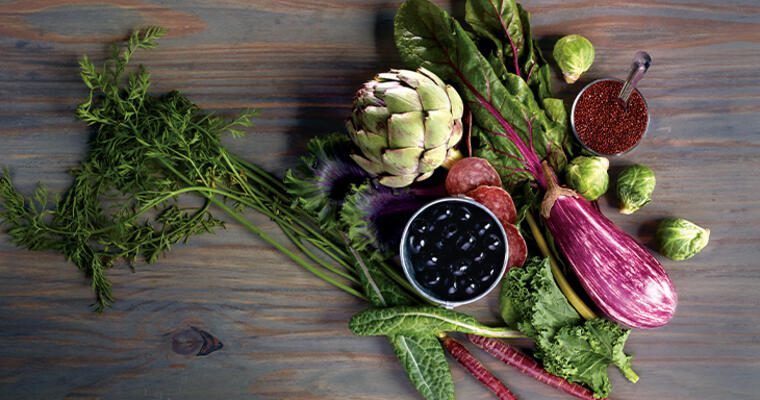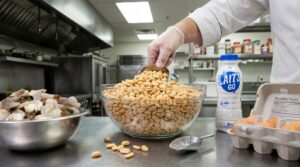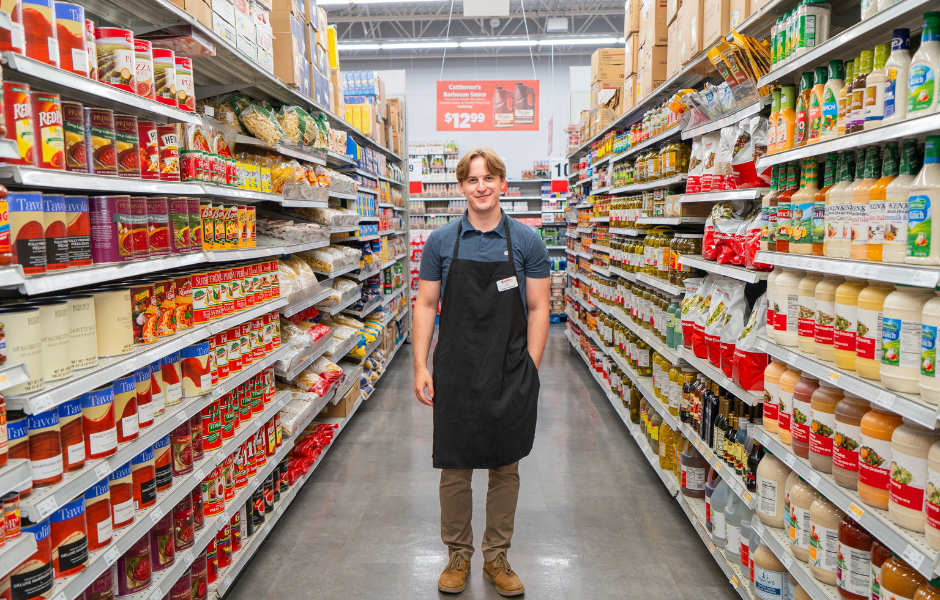The pandemic has reduced production at pork, beef and chicken plants. Facing supply shortages and price increases, restaurants wonder what’s next when it comes to menu differentiation and maintaining margins. Craveable veg-centric and meatless options may be the answer.
We asked Gordon Food Service Corporate Consulting Chef Nick Gonring about it:
Why not just use plant-based burgers?
“If everyone is selling the same plant-based protein, what incentive do they have to choose yours?” The statistics back him up. A Datassentials poll during the first week of May showed only 12% of consumers would choose a plant-based burger if beef wasn’t on the menu.
With meat in short supply, what are some options?
The quintessential veg-centric option is Brussels sprouts roasted with bacon or bacon fat. Bits of meat add intense flavor. Same for adding a little prosciutto, pancetta or salami to a stone fruit salad. Try adding nori, furikake or bonito flakes to vegetable dumplings or roasted corn. They’re very simple inclusions with lots of umami. You can braise vegetables in bone broth.
How do you get started?
Use the condiments already in your pantry—hoisin sauce, soy sauce and oyster sauce can be used as a seasoning or glaze. You can cook broccoli on the grill and lightly brush it with bagna càuda (a sauce of garlic and anchovies). It enhances the value perception and adds a “Wow!” factor.
Which flavors make sense?
Global profiles stand out. Gochujang made into barbecue sauce, zatar for seasoning, miso in a marinade or dressing, sauerkraut or kimchi as a topper, pan-fried Spanish chorizo crumbles for texture, and sun-dried tomatoes with noodles.
What will make my food craveable?
Be intentional with food choices. Treat vegetables like meat by using some of the same cooking techniques—searing, smoking, barbecuing or glazing. Smoked carrots, parsnips or turnips yield marvelous results. Salads never grow old. With Caesar salad, people recognize the umami properties of anchovies and Parmesan cheese. You can even enhance it with an egg. Roasted potatoes with black garlic and Parmesan are going to give you good results.
What about portability?
The cold capacity of salads is great for transporting. Root vegetables are best for portability—larger cuts keep their texture during travel.
Isn’t all this expensive?
It’s all about menu writing and strategizing. People are naturally worried about waste and ingredient cost, but dry ingredients keep in the pantry a long time and work in numerous dishes. And you add profits when you treat relatively inexpensive vegetables like they’re the star of what you’re putting on the plate.











